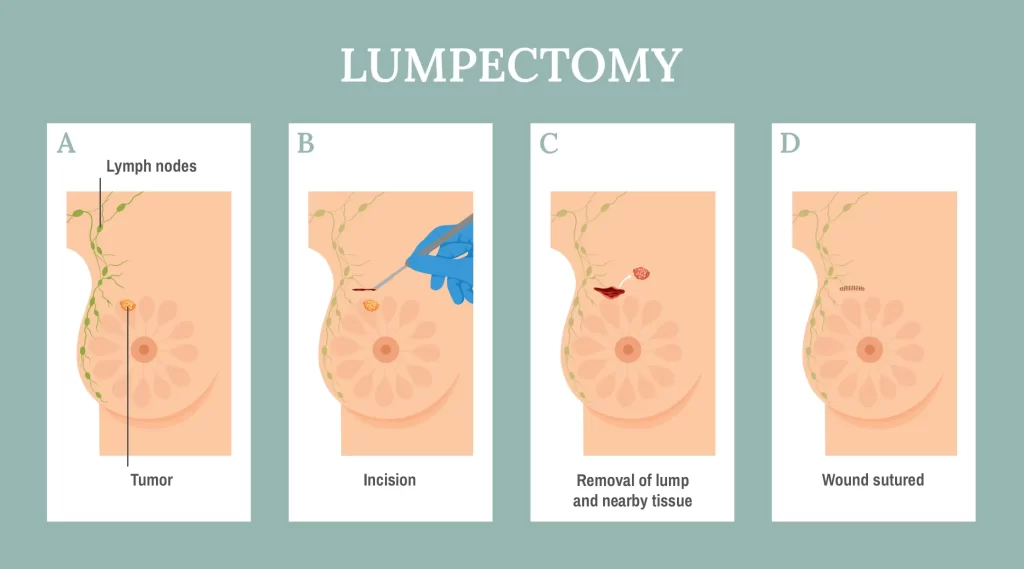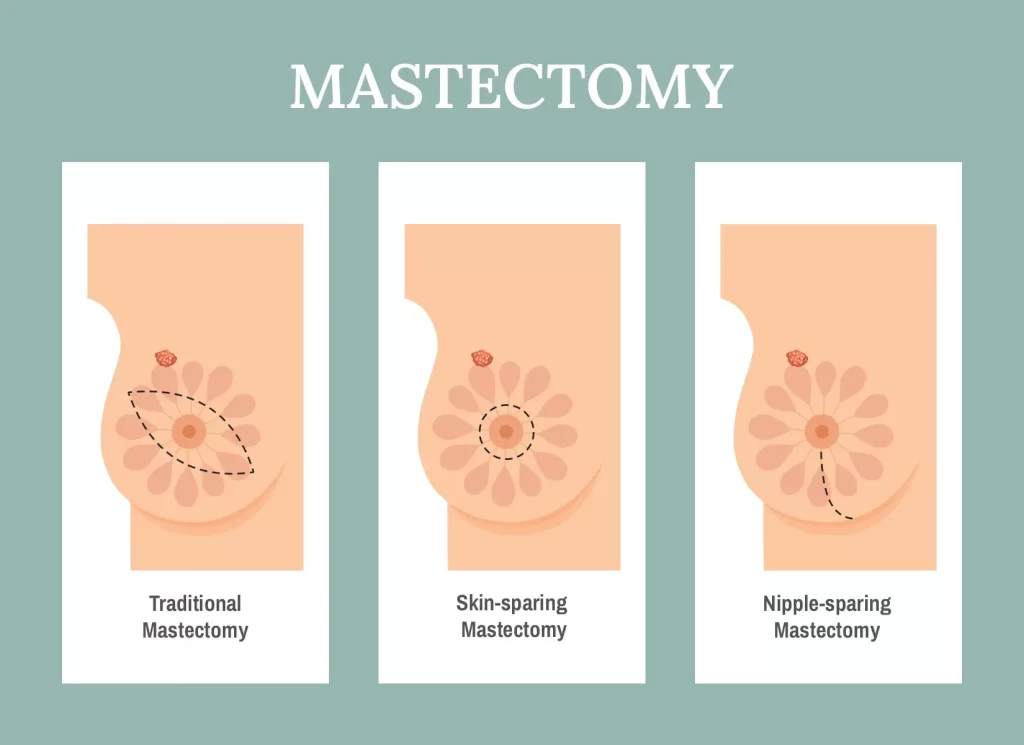Expert Breast Cancer Surgery Options in New Jersey
Breast cancer treatment requires a multidisciplinary team approach, including the coordinated efforts of surgeons, medical oncologists, radiation oncologists, radiologists, pathologists, plastic surgeons, and dedicated breast nurses. Most often, breast cancer surgery will be used in conjunction with other techniques, including chemotherapy, radiation therapy, and endocrine therapy. The Premier Surgical Network is a comprehensive team of breast surgeon specialists dedicated to offering personalized treatment plans for each of our patients throughout New Jersey.
Types of breast cancer surgeries
There are two main types of surgery for breast cancer – breast-conserving surgery such as lumpectomy, which removes only the tumor and some surrounding tissue, and mastectomy, which removes the entire breast. Both a lumpectomy and mastectomy are typically integrated with systemic treatments like chemotherapy, radiation, and endocrine therapy.
Lumpectomy

Lumpectomy is a breast-conserving surgery that removes only the tumor and a rim of normal tissue around it, preserving most of the breast. It is recommended for early-stage cancers and is typically followed by radiation therapy. The benefits are better cosmetic outcomes and the preservation of sensation and function of the breast. Early detection when tumors are small allows more women the lumpectomy option.
Mastectomy Options

- Unilateral vs. bilateral mastectomy: A unilateral mastectomy is the removal of one breast, while a double or bilateral mastectomy is the removal of both breasts. A mastectomy may be recommended for larger, more advanced tumors or risk reduction due to genetic mutations.
- Hidden scar mastectomy: This approach hides visible scars by placing the incision in the inframammary fold under the breast, in the axilla (armpit), or around the areola. The benefits are reduced visible scarring and improved cosmetic outcomes.
- Nipple-sparing mastectomy: In this technique, the breast tissue is removed but the nipple, areola, and skin envelope are preserved. This can provide better cosmetic outcomes for those undergoing mastectomy and later reconstruction.
- Sentinel lymph node biopsy: This procedure identifies and removes the first lymph nodes that drain from the tumor site to determine cancer spread beyond the breast for staging purposes. It is generally recommended over full axillary node dissection due to lower risk of lymphedema and pain.
Breast Reconstruction and Oncoplastic Surgery:
After a mastectomy, breasts can be surgically recreated using implants or autologous reconstruction, which uses a woman’s own tissues from the abdomen, back, or buttocks. Timing depends on the need for radiation or chemotherapy, but immediate reconstruction during mastectomy is also an option. Oncoplastic techniques reshape the breast at the time of lumpectomy.
Personalized Care and Treatment Planning
The breast cancer specialists at Premier Surgical Network recognize every patient’s situation is unique. With our patient-centric care approach, we help you understand each treatment option and work with you to develop a customized treatment plan that meets your needs. Most importantly, you are the key driver of decisions about your body and health. We are happy to discuss any personal preferences, worries, or questions openly with you so we can create a breast cancer treatment roadmap tailored specifically to your needs.
Your Road to Surgery Recovery
The recovery process after breast cancer surgery varies depending on the type of procedure, as well as each patient’s unique health status. In general, recovery time is shorter when the patient is in good health before surgery. For less invasive lumpectomy procedures, most patients can expect to return to relatively normal activities like eating regular meals and showering within 24 hours. After more complex mastectomy or reconstruction procedures, recovery typically takes longer depending on wound healing and post-operative pain management needs.
The recovery journey also impacts mental and emotional wellbeing. Adjusting to changes in body image and self-concept can be challenging. Post-surgery depression is common when coping with the emotions of a cancer diagnosis, grief over losing a breast, or post-treatment fatigue. Remaining optimistic takes work when recovering after surgery, because full recovery can take up to a year before sensation or range of motion returns to normal. Seeking social support and asking doctors for help managing any difficulties with pain, mobility, or emotional health is key. With time and follow-up care, most women can expect their physical limits to continuously improve and gain perspective on the many reasons to embrace life after breast cancer treatment.
Our Dedicated Team of Breast Caner Specialists
Our renowned New Jersey breast cancer surgery team includes renowned experts like Dr. Anjeanette Brown, board certified in advanced oncoplastic surgery, Dr. James Frost, specializing in hidden scar nipple-sparing mastectomy, Dr. Desiree D’Angelo, fellowship trained in cancer care, and Dr. Ann Chuang, a compassionate surgeon skilled in lymphedema prevention. With Premier Surgical’s deep bench of talent supporting you through breast cancer treatment, you can feel confident you will receive truly exceptional, personalized care. We encourage you to schedule a consultation with one of our breast specialists to discuss your treatment options and map out the best path forward through surgery and beyond.
Learn More About Our Procedures
Please contact us to schedule your appointment.
